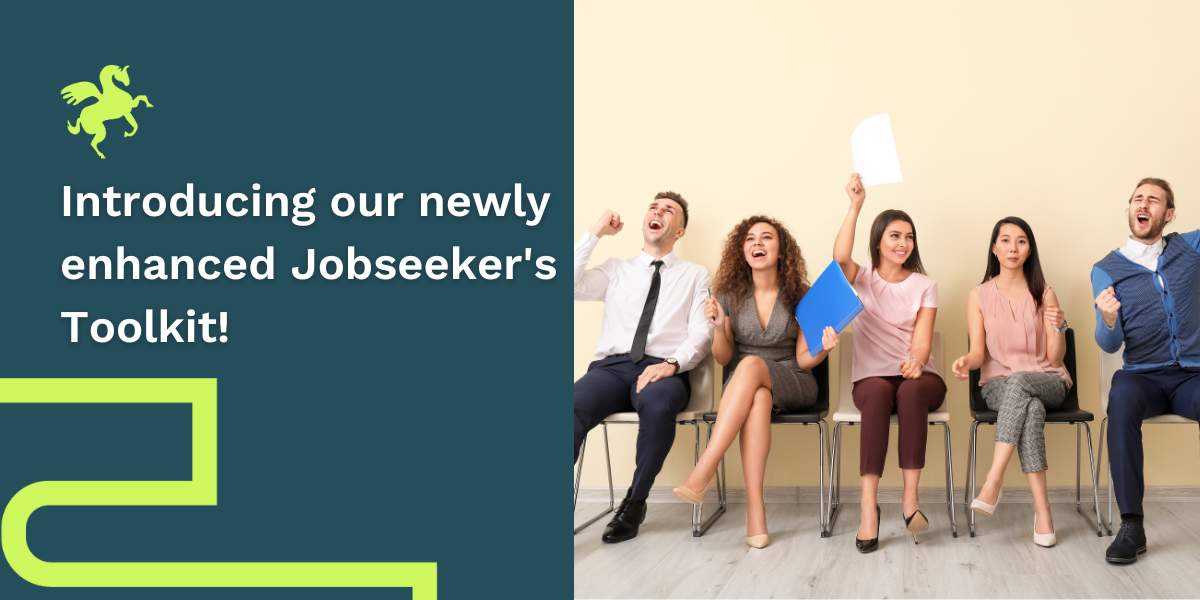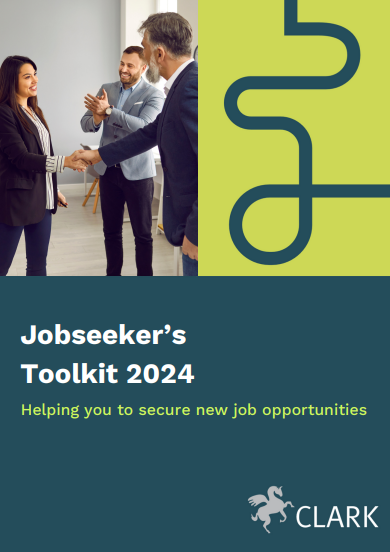Navigating the Shift: Attracting and Retaining Gen Z Talent
As we stand on the cusp of a new era in the workforce, it’s imperative for hiring managers to recalibrate their strategies to attract and retain Gen Z candidates. Born between the mid-1990s and early 2010s, this generation brings unique expectations and preferences that will shape the workplace landscape in the years to come.
1. Digital-First Mindset: Gen Z, having grown up in a hyper-connected world, is naturally tech-savvy. To appeal to them, ensure your organization leverages cutting-edge technology in its operations. From streamlined application processes to virtual onboarding tools, adopting digital solutions not only resonates with Gen Z but also streamlines workflows for everyone.
2. Purpose-Driven Work: This generation places a high value on purposeful work. Beyond a paycheck, they seek employers aligned with their values. Clearly communicate your company’s mission and commitment to social responsibility. Showcase initiatives such as sustainability programs, community engagement, or ethical business practices. Authenticity here is key – Gen Z can spot token efforts from miles away.
3. Flexible Work Arrangements: The 9-to-5 office grind is evolving. Gen Z values flexibility and work-life balance. Offering remote work options, flexible hours, or compressed workweeks can be powerful incentives. Emphasize results over hours logged; this not only accommodates their preferences but fosters a results-oriented culture beneficial to the entire team.
4. Continuous Learning Opportunities: Gen Z places a premium on continuous learning and skill development. Provide opportunities for professional growth through mentorship programs, training sessions, and access to online courses. Emphasize a commitment to their career development, showing that your organization is invested in their long-term success.
5. Diversity and Inclusion: A diverse and inclusive workplace is non-negotiable for Gen Z. Showcase your commitment through transparent hiring practices, diversity metrics, and inclusive policies. Foster an environment where everyone feels heard and valued. Highlight employee resource groups or initiatives aimed at promoting diversity within the company.
6. Fluid Communication Channels: Gen Z has grown up with instant communication. Rigid hierarchies and formalities may not resonate with them. Embrace open communication channels, such as collaborative platforms and instant messaging tools. Encourage a culture where ideas flow freely, and feedback is welcomed.
Successfully attracting and retaining Gen Z talent requires a nuanced approach. By embracing their digital fluency, aligning with their values, offering flexibility, prioritizing continuous learning, championing diversity, and fostering open communication, your organization can position itself as an attractive workplace for the next generation of professionals. This adaptability is not just a response to evolving expectations but a strategic move towards a future-ready workforce.
For more information or to discuss any of these points further, please contact us or reach out to us on 045 881 888 or hello@clark.ie.
Introducing our newly enhanced Jobseeker’s Toolkit!
2. Tips on Searching for Roles
Navigating through a myriad of opportunities requires strategic and targeted search techniques. From honing in on industry-specific platforms to crafting tailored resumes, these tips empower jobseekers to stand out in a sea of applications, ensuring they find and secure the roles that align with their skills and aspirations.
3. Interview Excellence Handbook
JobSeeker’s can register their cv for future opportunities, or visit our website to search & apply for open roles. For more information on career journey management, contact us or call our team on 045 881 888 or careers@clark.ie.
The Power of Partnership: Collaborative Recruitment Approaches
In the ever-evolving landscape of talent acquisition, businesses are navigating a complex terrain to secure the right talent for sustained growth. While recruitment agencies have long been considered transactional service providers, a paradigm shift is underway. The key to unlocking unprecedented business growth lies in embracing collaborative recruitment approaches and fostering true partnerships with recruitment agencies.
I. Introduction: Rethinking Recruitment as a Strategic Partnership
Evolving Business Needs and Recruitment Realities
The dynamics of the modern workforce are constantly evolving. As businesses face unprecedented challenges, the role of recruitment has shifted from a one-size-fits-all approach to a more strategic and customized endeavor. Organizations must not only find candidates with the right skills but also individuals who align with their culture and long-term goals.
The Limitations of Traditional Recruitment Models
Traditional recruitment models often fall short in addressing these multifaceted needs. A myopic focus on transactional relationships may result in short-term gains but fails to address the holistic requirements of modern businesses. To truly thrive, organizations need a collaborative recruitment approach that transcends the conventional client-agency dynamic.
II. The Essence of Collaborative Recruitment
Defining Collaborative Recruitment
Collaborative recruitment is not merely a buzzword; it represents a fundamental shift in the way businesses approach talent acquisition. At its core, it involves a partnership-based model where the recruitment agency becomes an extension of the client’s team. This shift in perspective is crucial for unlocking the full potential of recruitment agencies.
Building a Bridge Beyond Transactions
Moving beyond the transactional nature of traditional recruitment, collaborative approaches build a bridge of understanding and mutual commitment. Instead of a mere service provider, the recruitment agency becomes a strategic ally, invested in the client’s success.
III. Customization for Cultural Fit and Long-Term Success
Tailoring Solutions to Unique Organizational DNA
One of the hallmarks of collaborative recruitment is customization. Rather than employing a one-size-fits-all strategy, recruitment agencies work closely with clients to understand their organizational DNA. This ensures not only the identification of candidates with the right skills but also those who resonate with the company’s values and culture.
Case Study: Tech Startup’s Quest for Innovation
Consider the case of a dynamic tech startup aiming to infuse innovation into its workforce. Through a collaborative partnership, a recruitment agency tailored the hiring process to attract candidates not only with technical prowess but also a shared entrepreneurial spirit. The result was a team that not only met project requirements but also contributed to the startup’s culture of innovation.
IV. Transparent Communication: A Cornerstone of Collaboration
The Power of Open Lines of Communication
Effective collaboration is impossible without transparent communication. This involves an open dialogue between the client and the recruitment agency, fostering an environment where insights, challenges, and expectations are shared freely.
Case Study: Manufacturing Company’s Surge in Hiring Needs
In a scenario where a manufacturing company experienced a surge in hiring needs, transparent communication was pivotal. Regular check-ins and feedback sessions ensured that the recruitment agency was well-informed about evolving requirements. This facilitated a smooth and efficient hiring process, mitigating challenges associated with rapid expansion.
V. Strategic Alignment for Long-Term Success
Beyond Immediate Staffing Needs
Collaborative recruitment is not just about filling immediate staffing needs; it’s about strategic alignment for long-term success. The recruitment agency, in a true partnership, contributes to the organization’s workforce planning and overall growth strategy.
Case Study: Financial Institution’s Strategic Workforce Planning
Consider a financial institution that collaborated with a recruitment agency specializing in finance roles. The agency not only filled crucial positions but also provided valuable market insights. This collaborative approach not only met immediate hiring needs but also contributed to the client’s strategic workforce planning, ensuring sustained growth.
VI. Metrics and KPIs: Ensuring Accountability and Success
Establishing Clear Benchmarks
To measure the effectiveness of a collaborative recruitment partnership, clear metrics and Key Performance Indicators (KPIs) are essential. These benchmarks not only hold the recruitment agency accountable but also provide valuable data for continuous improvement.
Case Study: Retail Company’s Focus on Time-to-Fill Rates
In a retail scenario where reducing time-to-fill rates was a priority, a collaboration with a recruitment agency set specific metrics. Through regular performance reviews and adjustments to the recruitment process, the partnership achieved faster hiring cycles. This not only met the immediate need but also positively impacted overall business productivity.
VII. Navigating Future Challenges: Embracing Innovation
Adapting to the Future of Work
The collaborative recruitment model must also be adaptable to future challenges. Embracing innovation, leveraging technology, and cultivating diversity in the hiring process are essential components for staying ahead in the evolving landscape of recruitment.
Case Study: Technology Integration for Scalable Solutions
Consider a scenario where a forward-thinking recruitment agency integrated cutting-edge technology into the hiring process for a client facing rapid expansion. This not only streamlined recruitment efforts but also set the stage for scalable solutions to meet future challenges.
VIII. Conclusion: Elevating Recruitment to a Catalyst for Growth
In conclusion, the power of partnership in recruitment is transformative. By fostering true partnerships with recruitment agencies, businesses can customize their hiring strategies, align strategically for long-term success, and achieve unparalleled results. It’s not just about filling roles; it’s about building a collaborative alliance that propels the business forward in the competitive talent landscape. Embracing the power of partnership unlocks the true potential of recruitment agencies, turning them into catalysts for sustained and unprecedented business growth.
For more information or to discuss any of these points further, please contact us or reach out to us on 045 881 888 or hello@clark.ie.
Elevate Your Career: Proven Strategies for Promotion
For many professionals, career growth and advancement are more than just aspirations – they’re essential objectives. To achieve this, one must not only perform their job effectively but also take proactive steps to stand out and demonstrate their readiness for a promotion. In this thought leadership blog, we’ll explore the strategies and advice that can help workers improve their career prospects and drive themselves towards promotion.
Part I: Self-Assessment and Goal Setting
Reflect on Your Current Position
To map out a successful career journey, start by taking a moment for self-reflection. Evaluate your current position, recognizing your strengths, areas for improvement, and the contributions you’ve made to the organization. This introspection lays the groundwork for understanding your career goals and what you need to work on to achieve them.
Define your career objectives clearly, envisioning the position you aspire to, the responsibilities you want to shoulder, and the impact you aim to make. This goal-setting process provides you with a sense of direction and motivation. Develop a structured career development plan that outlines the necessary steps to reach your goals. Identify the skills, knowledge, and experiences you need to acquire. A well-defined plan guides your actions and ensures you’re on the right path.
Embrace a mindset of continuous learning by investing in courses, certifications, and workshops. Staying ahead of industry trends and expanding your skill set not only makes you a valuable asset to your organization but positions you as a proactive and adaptable professional.
Define Your Career Goals
In the journey of professional growth, defining your career goals becomes the compass guiding you. This step requires introspection, and for you to articulate your aspirations. Imagine the position you yearn for, the responsibilities that set your soul on fire, and the impact you wish to have on your professional landscape.
Why is this important? Consider your career goals as the North Star on your navigational chart. They offer a clear direction, providing a roadmap for your professional expedition. Without this clarity, the path forward may appear hazy, making it challenging to find the motivation needed to make your final destination.
By defining your career goals, you’re not merely sketching a distant dream; you’re setting the stage for a compelling narrative of your professional evolution. It’s the cornerstone upon which you build the story of your success, aligning your ambitions with actionable steps and infusing your journey with purpose. So, take a moment to dream big, to envision the future you desire, and let these goals be the guiding light on your odyssey of growth and accomplishment.
Create a Career Development Plan
Develop a structured career development plan that outlines the steps you need to take to reach your goals. Identify the skills, knowledge, and experience you need to acquire. Having a career development plan is akin to drafting a strategic blueprint for your success. This step involves moving beyond the realm of aspirations and translating them into actionable, tangible milestones. Imagine it as the scaffolding that supports your journey, from where you stand now to arriving at your career aspirations.
Why is this vital? Without a plan, goals risk becoming mirages, shimmering on the horizon but slipping through your fingers. A career development plan, transforms your ambitions into a structured framework, outlining the necessary steps, milestones, and timelines. It’s your personal roadmap, providing a clear trajectory for skill acquisition, knowledge enhancement, and experiential growth.
This isn’t just a checklist, it is a dynamic document that evolves with you. It serves as a compass, ensuring you stay on course amidst the twists and turns of your career. By identifying the skills, knowledge, and experiences you need to acquire, you’re essentially equipping yourself with the tools necessary for success. So, in your professional narrative, let your career development plan be the thread that weaves your ambitions into reality, one step at a time.
Continuous Learning
Embrace a mindset of continual learning. Invest in courses, certifications, and workshops to improve your skills and stay up to date in your field. In a thriving career, continuous learning is the rhythm that propels you forward. It’s not just a phase, it’s a commitment to self-improvement and staying ahead of the curve. Imagine it as the fuel that keeps your professional engine running.
Why is this crucial? In a world where industries transform, and technologies leapfrog, standing still is synonymous with falling behind. Embracing a growth mindset of continuous learning is a skill that transforms challenges into opportunities. It involves actively seeking out knowledge, investing in learning that not only augments your skill set, it also keeps you abreast of the latest industry trends.
This commitment to perpetual learning isn’t a checkbox on your career to-do list; it’s a mindset. By consistently enhancing your skills, you remain a valuable asset to your organization but also position yourself as a dynamic, adaptable professional. Consider continuous learning as critical, and it will ensure that your career is always in tune with innovation and excellence.
Part II: Demonstrating Your Value
Consistently Excel in Your Current Role
Exceptional Performance: Strive for excellence in your current position. Meet and exceed your targets, and always seek opportunities for improvement.
In career progression, excelling in your current role sets the tone for future promotions and positions. It’s not about meeting expectations; it’s about surpassing them consistently, crafting a narrative of excellence that reverberates across your professional landscape.
Your current role serves as the case study where your capabilities and potential are showcased. Striving for excellence isn’t just a pursuit of perfection; it’s a strategic move towards recognition and advancement. By meeting and exceeding targets, you’re proving your competence while also signaling your readiness for more significant responsibilities.
Consistently excelling in your current role transforms your eminence within your team, fostering a reputation as a dependable, high-achieving professional. It’s the foundation upon which you build your professional credibility.
Take Initiative and Responsibility
Be proactive in identifying and addressing challenges or opportunities in your role. Taking initiative and embracing responsibility is akin to stepping into the spotlight. It’s not just about fulfilling assigned tasks; it’s about actively seeking out opportunities to contribute, a deliberate move from being a passive participant to a proactive driver of your professional narrative.
Initiative and responsibility are the dual engines that propel you beyond your current role. By showcasing a proactive attitude, you’re not waiting for opportunities; you’re boldly opening doors yourself. This embodies your commitment to growth, signaling to peers and superiors that you’re not just content with the status quo.
Taking on additional responsibilities helps you demonstrate a readiness for more significant challenges. It positions you as someone who embraces the demands of their role, but is actively seeking avenues for growtht. So, step into the limelight, seize the initiative, and let the spotlight illuminate your path to professional excellence.
Quantify Your Achievements
Highlight your achievements with concrete, measurable data. Use metrics to show the impact of your work on the organization. Quantifying your achievements makes your professional story vivid and compelling. It’s not about narrating accomplishments; it’s about translating them into measurable metrics, creating a narrative that tells a story about your impact.
Numbers have a unique language; they provide a tangible, irrefutable testament to the value you bring to your organization. By attaching metrics to your achievements, you’re transforming vague success stories into concrete evidence of your contributions. This quantification becomes a powerful tool in conveying the scale and significance of your work to decision-makers.
Measurable results demonstrate the tangible impact of your efforts, underscoring your commitment to accountability and transparency. Whether it’s improving efficiency, boosting revenue, or enhancing team productivity, attaching numbers to your accomplishments elevates your narrative.
Showcase Leadership Skills
Leadership isn’t confined to titles; it’s a mindset and a set of behaviors. Demonstrating your leadership skills signals your readiness for greater responsibilities. It goes beyond executing tasks; it’s about embodying qualities that inspire and guide others, regardless of position.
Leadership skills weave a narrative of influence and impact. Developing these skills, even within your current role, sets you apart as someone with the foresight to steer projects and teams towards success. Leading projects, mentoring colleagues, and exhibiting qualities of a leader not only make you an invaluable team member but also position you as a potential architect of organizational growth.
By showcasing these skills, you’re positioning yourself as a catalyst for positive change within your team and organization. It’s a strategic move that resonates with decision-makers and speaks volumes about your potential to influence and inspire others.
Part III: Building a Strong Professional Brand
Network and Relationship Building
Build a strong professional network both within and outside your organization. Networking can provide opportunities and insight into the industry and your organization. It’s not just about exchanging business cards; it’s an effort to cultivate authentic connections, transforming your professional ecosystem into a community of support, collaboration, and opportunities.
Networking is a continuous process that bears fruits over time. These relationships can serve as a sounding board for ideas, a source of advice during challenges, and a bridge to new prospects.
Your network is a vibrant tapestry of individuals who can share insights, mentorship, and collaborative ventures. Attending industry events, engaging in conversations, and fostering genuine connections contribute to a network that becomes an invaluable asset throughout your career.
Online Presence and Personal Branding
In the digital age, cultivating an online presence and personal brand are not just trends; they shape your professional identity. It goes beyond LinkedIn; it’s a deliberate curation of your online presence, transforming you into a recognizable and influential figure in your field. When utilized fully, your online presence becomes a powerful tool for visibility and credibility.
Your online presence is often the first impression you make in a world connected through screens. Your LinkedIn profile isn’t just a digital resume; it’s a platform where you showcase achievements, share industry insights, and connect with like-minded professionals. Crafting a personal brand involves deliberately aligning your values, expertise, and unique qualities to create a cohesive narrative that sets you apart.
Effective Communication Skills
Effective communication skills are paramount for promotion as they go beyond conveying ideas. They establish a leader’s ability to inspire, motivate, and drive collaborative efforts. Develop your communication skills, both written and verbal. Be clear, concise, and articulate in your interactions with colleagues and superiors. Effective communication skills matter when positioning for a promotion as they enable clear articulation of ideas, fostering positive relationships and teamwork. They empower individuals to influence decision-makers, navigate conflicts diplomatically, and align with organizational goals.
Strong communication showcases leadership potential, making candidates more compelling and valuable contributors to higher-level roles within the organization. It’s about being a persuasive influencer, an active listener, and an adept problem solver. In leadership positions, effective communication is the linchpin for organizational coherence and employee engagement.
Part IV: Seek Opportunities for Growth
Express Your Interest in Advancement
Cultivate open and honest discussions with your manager regarding your career aspirations and eagerness for advancement. Initiate these dialogues to gain valuable insights into the company’s strategic direction and future opportunities. By articulating your career goals, you create a collaborative environment where your manager can offer mentorship and guidance, aligning your ambitions with organizational needs.
This proactive approach not only demonstrates your commitment but also positions you as an engaged and forward-thinking team member. Through open conversations, you not only express your aspirations but also forge a stronger connection with your manager, fostering a supportive relationship crucial for career development and, ultimately, successful promotion.
Participate in Special Projects
Volunteer for special projects or cross-functional teams within the organization to strategically position yourself for promotion. Actively seeking additional responsibilities demonstrates initiative and a commitment to the company’s success. Involvement in these projects provides a tangible platform to showcase your skills, problem-solving abilities, and capacity to handle complex tasks. It offers visibility to decision-makers, highlighting your versatility and dedication.
This not only enriches your professional experience but also underscores your value to the organization. By willingly taking on challenges, you signal your readiness for higher responsibilities, making a compelling case for promotion by illustrating your impact on critical initiatives within the company.
Continuous Feedback and Development
Actively seek feedback from your superiors and colleagues as a strategic move when positioning yourself for a promotion. Embracing feedback demonstrates your commitment to continuous improvement and professional development. By actively seeking input, you showcase adaptability and a willingness to refine your skills based on constructive criticism. This not only enhances your individual performance but also contributes to a positive and collaborative workplace culture.
Demonstrating a proactive approach to feedback signals to decision-makers that you are invested in your own growth, aligning yourself with the organization’s values. This commitment to continuous improvement reinforces your readiness for higher responsibilities and leadership roles.
Part V: Persistence and Patience
Maintain a Positive Attitude
Maintain a positive mindset when positioning yourself for a promotion. Cultivate an optimistic outlook, approaching challenges with a “can-do” attitude. A positive mindset not only boosts your own resilience in the face of setbacks but also creates a ripple effect within the team. It fosters a constructive work environment and enhances your ability to collaborate effectively.
Decision-makers appreciate individuals who inspire and uplift their colleagues, making a positive impact on overall team morale. In the context of promotion, showcasing resilience and a can-do attitude signals that you can navigate challenges with grace, contributing to a harmonious and productive workplace conducive to both personal and organizational success.
Be Patient and Persistent
Demonstrate resilience when positioning yourself for a promotion by acknowledging that career advancement is a gradual process. Embrace patience and persistence in your pursuit of professional growth. Recognizing that success takes time underscores your commitment to long-term goals. Decision-makers value individuals who exhibit perseverance in the face of challenges. It showcases your dedication to achieving objectives, even when faced with obstacles.
Persistently working towards your goals not only reflects your resilience but also positions you as a reliable and determined team member. This characteristic is vital for handling higher responsibilities, making you a compelling candidate for advancement.
Consider Alternative Paths
Exhibit flexibility when positioning yourself for promotion by considering alternative paths, even if the route within your current organization seems challenging. Being open to exploring new opportunities outside the company demonstrates strategic thinking and adaptability. It emphasizes that your commitment to career advancement is unwavering, and you are willing to navigate diverse avenues to achieve your goals. Decision-makers appreciate individuals who can assess situations objectively and make calculated career moves.
This flexibility not only showcases your proactive approach but also positions you as someone with a broader perspective, capable of seizing opportunities wherever they may arise, ultimately contributing to your professional growth.
Improving your career prospects and working towards a promotion is a journey that requires dedication, self-assessment, and strategic action. By following the advice and strategies outlined in this blog, you can position yourself as a standout professional and increase your chances of securing that sought-after promotion. Remember, the road to success is not always linear, and it may involve challenges along the way. However, with the right approach and determination, your career aspirations are well within reach.
For more information or to discuss any of these points further, please contact us or reach out to us on 045 881 888 or hello@clark.ie.
Refer a Friend to Earn Rewards!
Do you have a friend looking for a new job? Why not be rewarded for recommending them to us? For every friend you refer that we place in a job we will reward you with an One4all gift card.
If your referred friend finds contract employment through Clark Recruitment, you will receive a €100 gift card. If they are placed in a permanent position you will receive a €250 gift card.
The number of referrals you can make is unlimited – so refer your friends today and start enjoying the rewards. Simply follow the 3 steps below, to put your friends in touch with a recruiter at Clark Recruitment!
Just follow these 3 simple steps:
- Refer your friend by sending us their name and contact details using the link https://clark.ie/contact/
- Indicate whether you think your friend is more interested in permanent or contract roles
- When your friend finds a job through us we’ll send you a voucher worth up to €250 *(terms and conditions apply). Start shopping using your One4all and reap the rewards!
Terms & Conditions:
- The All for One gift card is not redeemable for cash. There are alternatives, the prize will only be made available as advertised.
- The referee will not be eligible to receive the referral gift under this scheme if the referred person is already on the Clark Recruitment database at the date of referral or if Clark Recruitment have already received their details but have not yet entered them on to their database.
- The referred person must be notified and have consented to their details being passed to Clark Recruitment under this scheme before the date of the referral.
- This is the responsibility of the referee and is subject to the Data Protection Act 1988 and 2003 all relevant GDPR legislation.
- The referee will indemnify Clark Recruitment for any loss or claim arising out of the referee’s failure to procure such consent.
- Candidates can only be referred once. In the event that a candidate is referred to Clark Recruitment Ltd by more than one referee, only the first person to refer that candidate to Clark (with the referred person’s permission) will be eligible for a referral gift under this scheme.
- Only one payment will be made to a referee for the referral of one person who is hired in a contract, contract to permanent or permanent position. Minimum contract 3 months or 12 weeks.
- Clark Recruitment reserves the right to vary or terminate all or part of the above terms, at any time.
For more information or to refer a friend to us, contact us today. Jobseekers can search our current vacancies and apply here.
Annual Salary Guide 2024
We are pleased to announce the unveiling of our Annual Salary Guide 2024.
This comprehensive salary guide has been meticulously curated through an in-depth analysis of salary data gathered from over 5000 jobseekers who have registered with us in the past 8 months (April to November 2023). Additionally, our examination extends to a detailed review of salary levels across 500 job openings in our region during the same timeframe. The current job market remains candidate-centric, characterised by an abundance of job openings in comparison to available job seekers. This dynamic presents a challenge for businesses, who may find it difficult to locate and attract the skilled professionals they require. While some employers are adopting a cautious recruitment approach, those who delay in making hiring decisions risk losing preferred candidates to competitors who extend prompt job offers.
Projected Salary Increases
Projected salary increases for 2024 are anticipated to be more restrained compared to the notable upswings observed in recent years. This moderation
may prompt certain professionals to explore alternative opportunities. Many employers are cognizant of this trend, with many opting to enhance compensation in efforts to retain valuable team members and bolster their competitiveness in a challenging hiring landscape.
Flexible Talent Model
In order to navigate the complexities of a competitive hiring market, businesses are increasingly embracing a flexible talent model. This involves engaging the services of both temporary and contract professionals, along with leveraging outsourced managed solutions. Each of these options presents a unique approach to alleviating talent shortages and providing immediate support for short-term projects, new business ventures, or internal pressures.
Disciplines Covered by our Salary Guide
Our salary guide provides comprehensive insights across various job sectors, including Human Resources, Accountancy, Financial Services, Sales, Retail, Marketing, Business Support, Environmental Health & Safety, Quality, Manufacturing, Engineering, Supply Chain, Logistics, and IT. It encompasses salary data for over 312 distinct roles. The primary objective of this guide is to furnish accurate information regarding salary levels throughout Ireland, with a specific focus on the mid Leinster region.
We are confident that it will serve as valuable “go-to tool” for both employers and employees, facilitating strategic planning for 2024.
Download your copy of the Annual Salary Guide 2024
For more insights or Information about our services, contact us or call our recruitment experts today on 045 881 888.
Statutory Sick Pay (SSP) Entitlement Update
As you are now fully aware, the Government enacted the Sick Leave Act 2022 from 1st January 2023. As of the 1st January 2024, the number of days an employee is entitled to take on paid sick leave increases from 3 to 5, as part of their Statutory Sick Pay (SSP) entitlement.
Introduction of Statutory Sick Pay (SSP)
The primary intention behind the introduction of the SSP is to provide sick pay coverage to those employees, often in low-paid and precarious roles, who do not have access to a company sick leave scheme. The scheme offers a floor level of protection and does not interfere with existing, more favourable, sick pay schemes.
The criteria around SSP remains unchanged.
- The rate for sick pay is paid at 70% of normal weekly pay, up to a maximum €110 a day.
- Sick days can be taken as consecutive days or non-consecutive days.
- The sick pay year is the calendar year, so it runs from 1 January to 31 December.
- The employee must be working in their current employment for 13 consecutive weeks.
Records to be retained by an employer:
An employer must maintain a record of all statutory sick leave taken to include:
- the period of employment of each employee who availed of statutory sick leave,
- the dates and times of statutory sick leave in respect of each employee who availed of such leave, and
- the rate of statutory sick leave payment in relation to each employee who availed of statutory sick leave.
These records must be retained for four years.
In conclusion, the new Statutory Sick Pay entitlement marks a significant stride towards prioritizing the well-being of workers. This invaluable benefit not only safeguards financial stability during periods of illness but underscores the importance of a supportive workplace. Recognizing the value of employee health is not just a legal obligation but a testament to fostering a culture that values and protects its most valuable asset—its people. As we navigate these changes, let’s champion a workplace environment where the welfare of every team member is paramount.
For more information or to discuss any of these points further, please contact us or reach out to us on 045 881 888 or hello@clark.ie.
Impending Increase to The Irish Minimum Wage
In Budget 2024, the Government suggested a minimum wage increase from January 1st 2024. This is now officially being enacted, and so, as of 1st January 2024, the Irish minimum wage increases to €12.70 per hour.
Companies are now legally obliged to pay each employee over 20 years of age a minimum of €12.70 per hour.
Below is the guideline on hourly rates of pay:
| Age Group | Minimum wage from 1 January 2024 |
| 20 and over | €12.70 |
| 19 | €11.43 |
| 18 | €10.16 |
| Under 18 | €8.89 |
Other salary considerations:
Please also be aware that the recommended living wage in Ireland is now €14.80 per hour.
If you have not already received our 2024 salary guide that was recently published, you can download your copy here.
In conclusion, the impending increase to the Irish Minimum Wage heralds a positive change for workers, signaling a commitment to fair compensation. This adjustment not only reflects economic progress but also places value on the fundamental principle that every worker deserves a wage that meets basic living standards. As the wage landscape evolves, let’s celebrate this stride towards greater financial equity and acknowledge the vital role it plays in creating a more just and sustainable work environment.
For more information or to discuss any of these points further, please contact us or reach out to Maire on 045 881 888 or maire@clark.ie.
Domestic Violence Leave: Steps Towards a Safer and More Supportive Workplace
Domestic violence is an unfortunate reality that affects many people across the world. It can have devastating consequences on victims, including physical, emotional, and financial abuse. The Irish government recognizes this and has taken a step towards providing support to victims at their workplace through the introduction of domestic violence leave.
Domestic Violence Leave
Effective from November 27, 2023, employers are legally required to offer up to five days of paid leave over a period of 12 months to employees affected by domestic violence. This new law is part of the Work Life Balance and Miscellaneous Provisions Act 2023.
This new legislation recognizes that victims of domestic violence may need time off work to deal with the aftermath of abuse. The employee will be paid their normal pay for those days, allowing them to focus on their well-being without worrying about their finances.
Other Supportive Measures
However, simply offering domestic violence leave is not enough. To implement it effectively, employers are recommended to embed this support measure within a wider organizational response to domestic abuse outlined in a workplace domestic violence policy.
A workplace policy offers clarity and guidance to both employers and co-workers in responding to the needs of an employee subjected to domestic violence. The policy should outline how employees can access support if they or someone they know is experiencing domestic abuse. It should also provide information on how management will respond sensitively and confidentially when approached by an employee seeking support.
Having a workplace policy not only ensures that all employees are aware of their rights but also sends out a clear message that your organization takes this issue seriously and offers its employees appropriate support during difficult times.
In conclusion, introducing this leave shows Ireland’s commitment towards creating a safer environment for all employees while acknowledging the prevalence of domestic abuse in our society. However, it’s essential for organizations not just to comply with these new laws but also actively work towards building supportive and safe workplaces for all employees.
For more information on this policy please contact us on 045 881 888 or hello@clark.ie.
Excel in Interviews: Crafting a Winning Impression
The job interview is your moment to shine, to show prospective employers that you’re the best fit for the role. It’s a high-stakes encounter where first impressions matter. In this blog, we’ll delve into the art of making the best impact and impression during your job interview. We’ll provide you with concrete pointers, detailing not just what to do but why it’s essential to excel in your interview.
Part I: Preparation is Key
Research the Company and Role Thoroughly
- How: Dive deep into the company’s website, annual reports, and any news articles or press releases. Study the job description and requirements.
- Why: Knowing the company’s values, mission, and current projects demonstrates your genuine interest. It also equips you to tailor your responses to align with the organization’s goals.
Understand the Industry and Competition
- How: Research the industry in which the company operates, as well as its competitors and market trends.
- Why: This knowledge helps you position yourself as someone who understands the broader context and can contribute strategically.
Prepare Responses to Common Interview Questions
- How: Anticipate typical questions like “Tell me about yourself,” “Why do you want to work here,” and “What’s your greatest weakness?” Prepare concise, well-structured answers.
- Why: Being ready for these questions allows you to communicate your qualifications confidently and succinctly.
Compile Your Own Questions
- How: Develop insightful questions to ask the interviewer about the company, the team, and the role.
- Why: This demonstrates your genuine interest and your desire to ensure the job aligns with your career goals.
Practice, Practice, Practice
- How: Conduct mock interviews with a friend, family member, or even in front of a mirror. Record yourself to identify areas for improvement.
- Why: Practicing builds confidence, helps you refine your responses, and minimizes nervousness.
Part II: Making a Strong First Impression
Dress the Part
- How: Choose attire that aligns with the company culture. When in doubt, it’s better to be slightly overdressed than underdressed.
- Why: Your appearance is the first thing an interviewer notices. Dressing appropriately demonstrates respect for the company and the role.
Punctuality is a Virtue
- How: Aim to arrive at the interview location 10-15 minutes early. If it’s a virtual interview, log in a few minutes before the scheduled time.
- Why: Being punctual conveys your reliability and respect for the interviewer’s time.
Confident Handshake and Eye Contact
- How: Offer a firm, friendly handshake (if in person) and maintain eye contact throughout the interview.
- Why: A confident handshake and eye contact exude self-assuredness and interpersonal skills.
Greet with Enthusiasm
- How: When you meet your interviewer, greet them with a warm smile and enthusiasm. Use their name.
- Why: Enthusiasm is infectious and sets a positive tone for the interview.
Part III: Navigating the Interview
Active Listening
- How: Listen attentively to the interviewer’s questions. Allow them to finish before responding.
- Why: Active listening helps you fully understand the question and respond appropriately.
Structure Your Responses
- How: Use the STAR method (Situation, Task, Action, Result) to structure your answers to behavioral questions. It provides a clear and concise way to convey your experiences.
- Why: A structured response helps you stay on track, ensuring the interviewer comprehends your point.
Showcase Your Achievements
- How: Whenever possible, illustrate your responses with specific examples of your accomplishments.
- Why: Concrete examples demonstrate your value and show that you’ve made a tangible impact in your previous roles.
Demonstrate Problem-Solving Skills
- How: Be ready to discuss how you’ve tackled challenges or resolved issues in your past roles.
- Why: Problem-solving skills are highly valued as they show you can adapt and contribute effectively.
Adaptability and Coachability
- How: Emphasize your willingness to learn and adapt to new situations or feedback.
- Why: Companies seek candidates who can grow and evolve with the organization.
Part IV: Communicating Your Value
Quantify Your Achievements
- How: Use numbers and statistics when discussing your accomplishments. For instance, “I increased sales by 30% in six months.”
- Why: Quantifying your achievements provides tangible evidence of your impact.
Highlight Soft Skills
- How: Mention soft skills like teamwork, communication, and adaptability in your responses.
- Why: Soft skills are often as important as hard skills, and showcasing them sets you apart as a well-rounded candidate.
Express Your Passion
- How: Communicate your genuine interest in the role and the company.
- Why: Passion is contagious, and it demonstrates your commitment to the position.
Emphasize Fit with Company Culture
- How: Mention examples of how your values align with the company’s culture and mission.
- Why: Cultural fit is crucial, as it ensures you’ll thrive and contribute positively to the organization.
Ask for Feedback
- How: Inquire about the next steps in the hiring process and if the interviewer has any reservations or additional questions.
- Why: This shows your eagerness and openness to address any concerns.
Part V: Closing the Interview Strong
Express Your Appreciation
- How: Thank the interviewer for their time and the opportunity.
- Why: Gratitude is a sign of professionalism and courtesy.
Reiterate Your Interest
- How: Conclude the interview by expressing your enthusiasm for the role and how you believe you’d be a valuable addition to the team.
- Why: Restating your interest reinforces your commitment to the position.
Part VI: Post-Interview Etiquette
Send a Thank-You Email
- How: Send a personalized thank-you email to the interviewer within 24 hours of the interview.
- Why: A thank-you email demonstrates appreciation, professionalism, and your continued interest in the role.
Follow Up if Necessary
- How: If you haven’t received a response within the expected timeframe, send a polite follow-up email inquiring about the status.
- Why: It shows your continued interest and engagement in the process.
A successful job interview isn’t just about showcasing your qualifications; it’s about creating a memorable impression. The tips provided in this blog, from preparation to post-interview etiquette, can help you stand out and prove that you’re the ideal candidate for the role. Remember, it’s not just about what you say but how you say it and the impression you leave that will make you a remarkable candidate in the eyes of the interviewer.

















